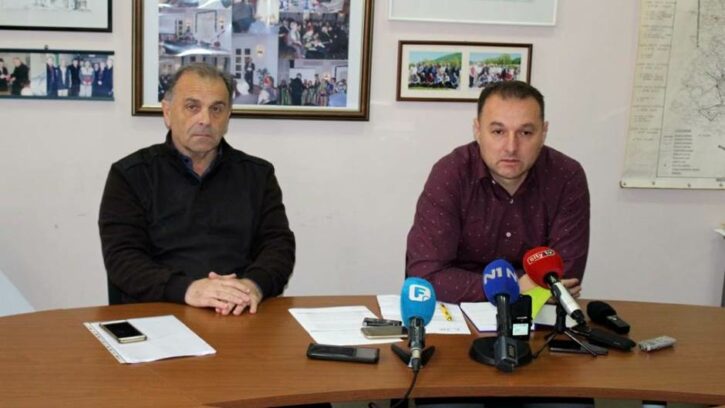
Former inmates of wartime prison camps in Herzegovina marked on Tuesday the 25th anniversary of the Washington Agreement that ended the Bosniak-Croat war and closed the Croat-held camps.
The survivors and the families of the victims laid flowers at graves, remembered the ordeals they endured and complained about their current status.
“A large number of prison camp inmates have disappeared and there is still no trace of them,” said Emir Hajdarevic, from the Association of former Prison Camp Inmates in Mostar, complaining that 646 persons still remain missing, 280 of whom are from Mostar.
This “needs to be put on the agenda,” he added.
There is no law in Bosnia regulating the status of former concentration camp inmates, he also complained.
“We demand a law to be adopted, if not at the state level, then at the level of the Federation (FBiH, the semi-autonomous entity mostly shared between Bosniaks and Croats), as on the level of Republika Srpska (RS, the other, Serb-majority entity) a law on victims of torture was adopted a long time ago,” he said, adding that having such a law is an obligation for Bosnia’s membership in the EU.
Hajdarevic also touched upon the release of Marko Radic, a Bosnian Croat war criminal who was sentenced to 21 years behind bars for war crimes he committed in the area of Mostar, but was released after he was transferred to serve his sentence in Croatia, where a court reduced his sentence.
To the outrage of former inmates, Radic was released end of 2018, after serving 12 and a half years in prison.
Victim associations think he should be sent back to Bosnia where he should serve the rest of his original sentence.
Edin Batlak from the Association of inmates from Mostar said that the local prosecution office rejected the association’s complaint against Bosnian Croat leaders Dragan Covic and Bozo Ljubic for publically rejecting a ruling of the UN war crimes tribunal that labelled the wartime Bosnian Croat ministate that ran the concentration camps as a joint criminal enterprise.
Batlak said the victims expected such a decision from the prosecution and will appeal.
The association is also marking on Thursday the anniversary of the signing of the Washington agreement that stopped the Bosniak-Croat war in 1994 and closed the camps with a panel discussion about peace and freedom and an organised viewing of the pronouncement of the final verdict of Bosnian Serb wartime leader Radovan Karadzic that will take place in The Hague, Netherlands.




